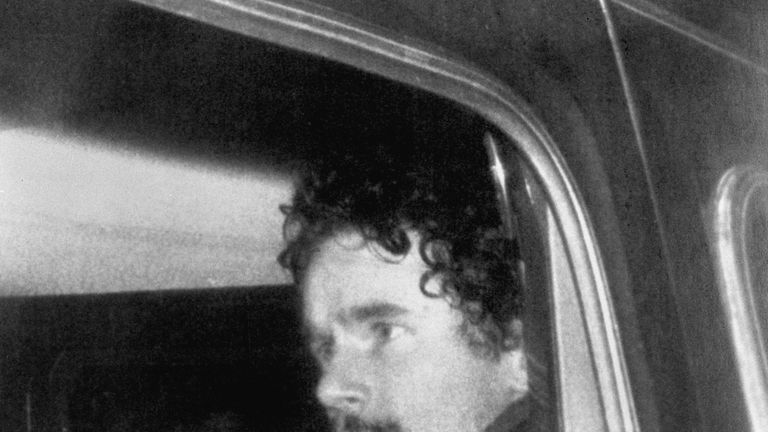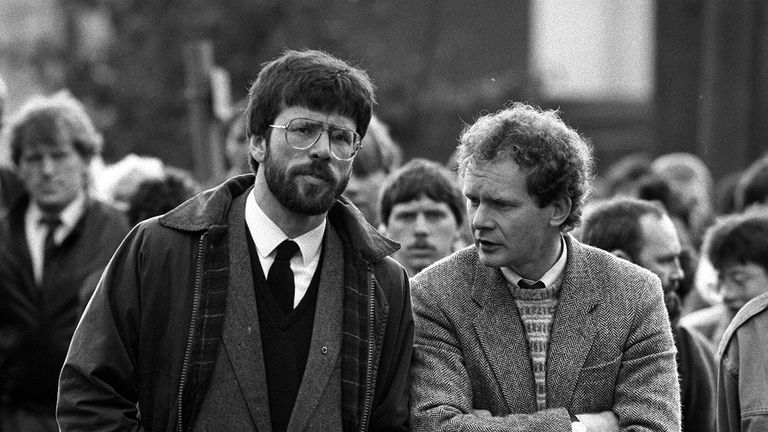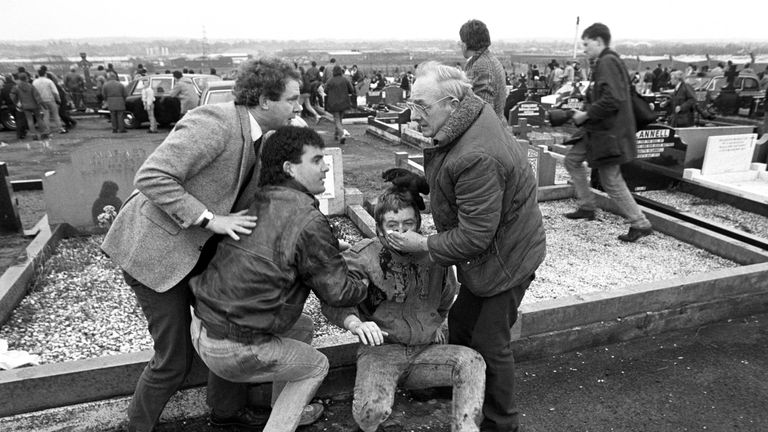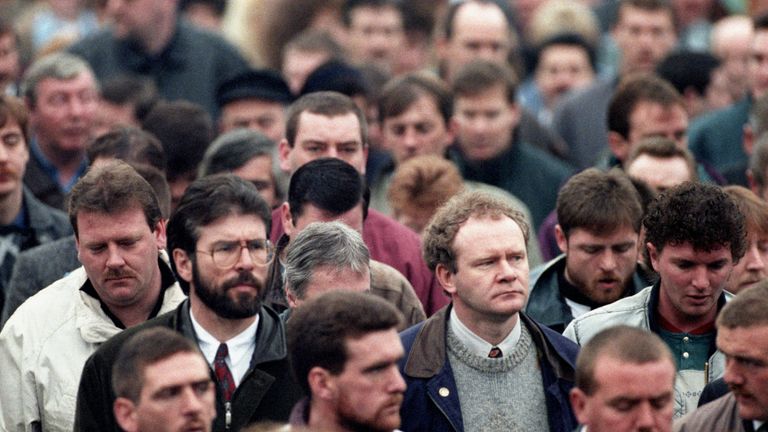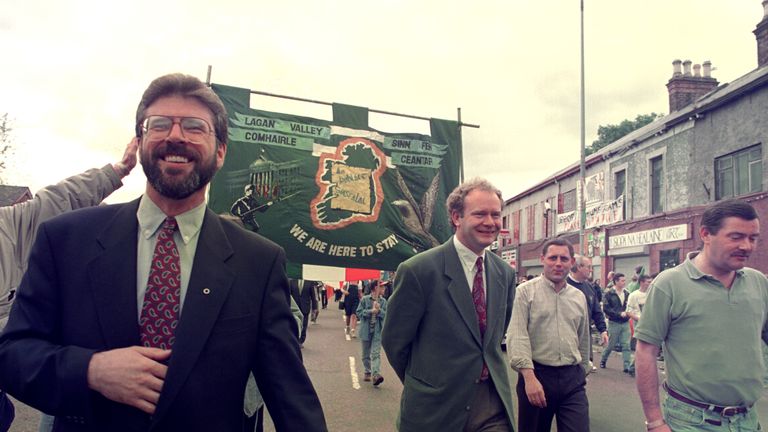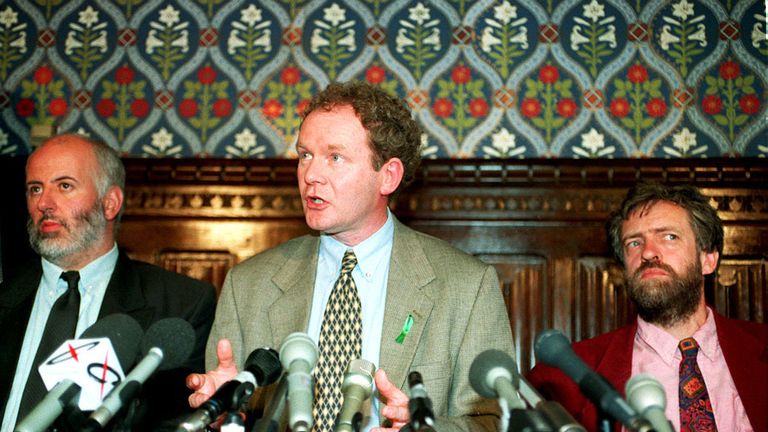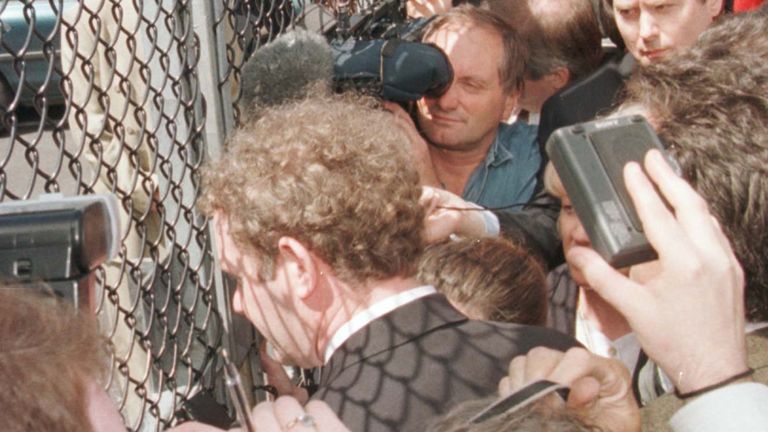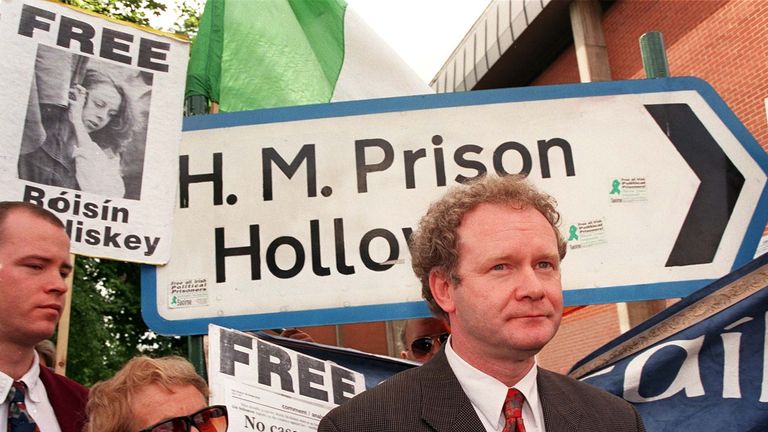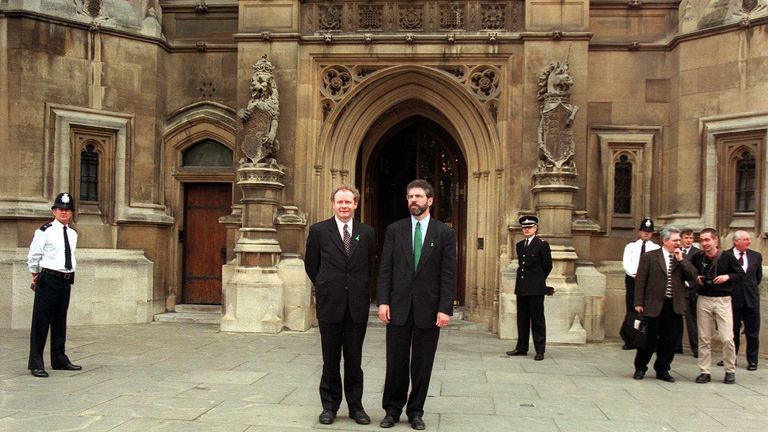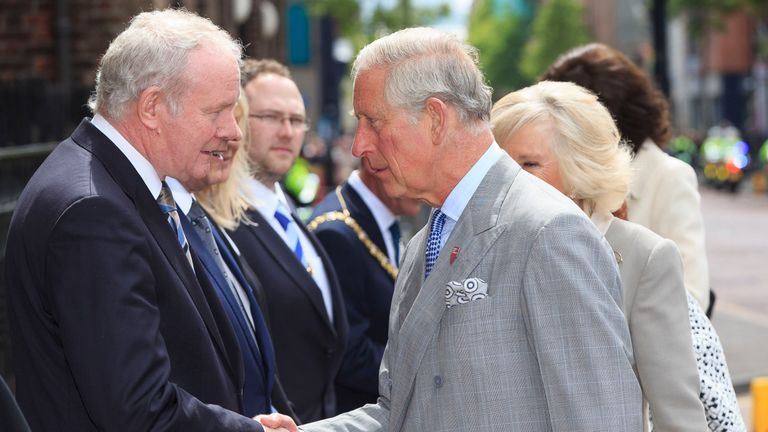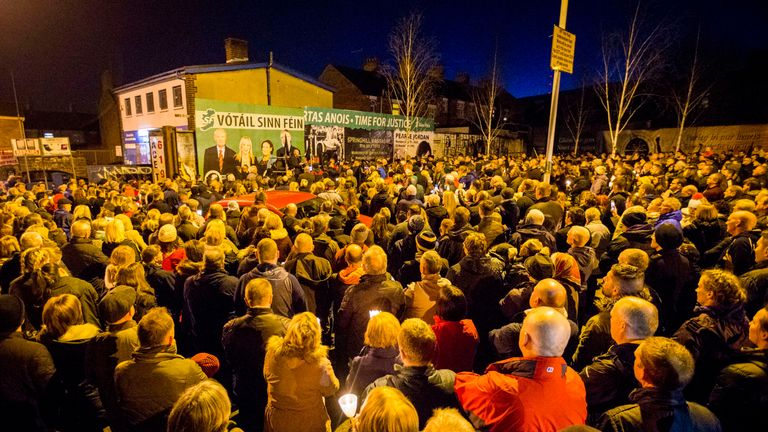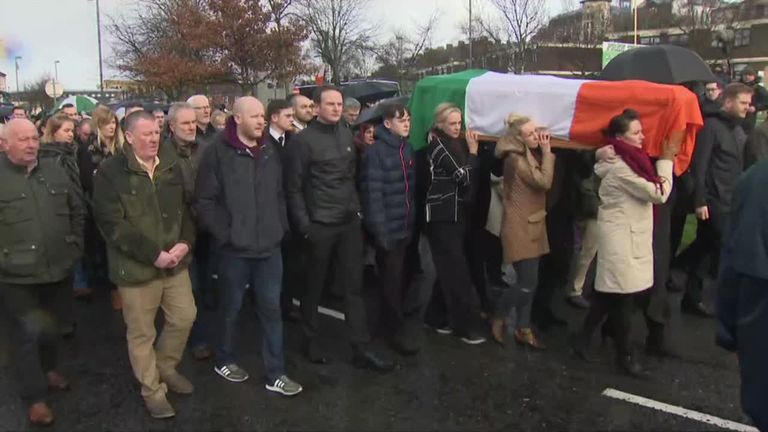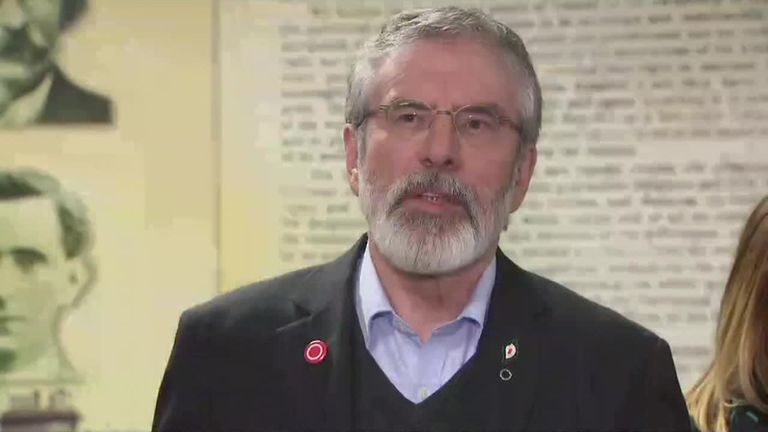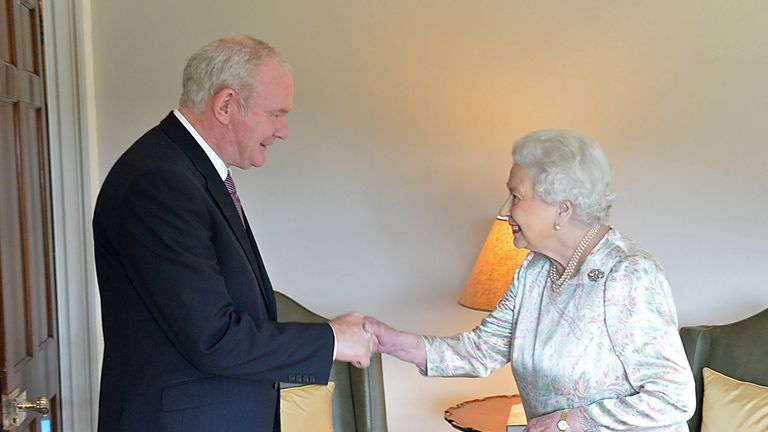Candlelit vigil as hundreds mourn their 'hero' Martin McGuinness
A candlelit vigil is held in the republican heartland of west Belfast, hours after his coffin is accompanied through Derry.
Wednesday 22 March 2017 06:39, UK
Hundreds of people gathered to pay tribute to Martin McGuinness after his death at the age of 66.
A candlelit vigil has been held in the republican heartland off the Falls Road in west Belfast.
It took place hours after crowds in Londonderry accompanied his coffin on his final journey home to his Bogside neighbourhood.
The Northern Ireland Assembly will be recalled on Wednesday to mark Mr McGuinness' death.
The former deputy first minister and IRA commander
Crowds in Belfast held black flags on Tuesday night and sang the republican ballad I Wish I Was Back Home In Derry.
Priest Gary Donegan hailed Mr McGuinness' contribution to the peace process as he addressed the vigil.
"Martin was a hero in life and a hero in death," he said.
In Mr McGuinness' hometown, crowds braved snow and sleet to accompany his coffin, which was draped in an Irish tricolour, from the funeral parlour to his home.
Another tricolour flag flew at half-mast near the Bogside's landmark Free Derry Corner.
One woman at the Londonderry vigil, Bernadette Adams, told Sky News' Tom Parmenter: "My children and my grandchildren are in peace now and he done that for us. It wouldn't have happened, only for Martin McGuinness and Ian Paisley."
An emotional Sinn Fein president Gerry Adams said his long-time friend was a passionate republican who worked tirelessly for reconciliation.
But while thousands of republicans hailed the legacy of Mr McGuinness, his death has drawn a very different response from the many victims of the IRA.
Some bereaved relatives have not forgiven him for his paramilitary past.
John Eaglesham, whose father - a postman and part-time soldier - was shot dead by the IRA in 1978, said: "People say about what he has done for the peace process.
"They seem to forget that for a very, very long time he wasn't part of the solution he was part of the problem, in fact he was the main part of the problem."
Stephen Gault, whose father Samuel died in the 1987 Poppy Day bombing in Enniskillen, said he would remember Mr McGuinness only as a "terrorist".
And former British government minister Norman Tebbit said he hoped Mr McGuinness is
Mr Tebbit survived the 1984 Brighton bombing which targeted the Conservative party conference, but his wife Margaret was left paralysed.
The IRA's attempt to assassinate then-prime minister Margaret Thatcher was among the most notorious of numerous attacks on the British mainland during the decades of violence known as the Troubles.
In 1994 the IRA declared an end to its campaign of violence and Mr Adams appointed Mr McGuinness as Sinn Fein's chief negotiator.
He played a key role in negotiating the landmark Good Friday agreement four years later and ended up sharing power in 2007 with his one-time foe, Democratic Unionist leader Dr Ian Paisley.
Mr McGuinness' last political act was to resign as deputy first minister in January over the "cash for ash" scandal, a move which triggered a snap election.
